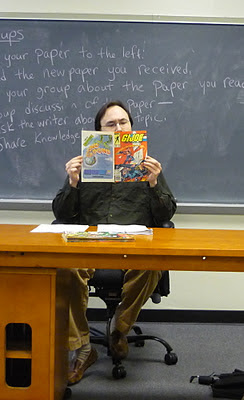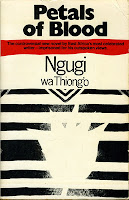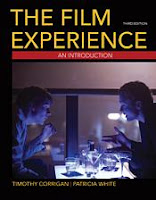How to Respond to a Critic
Posting will be light-to-nonexistent here until after the new year, but I want to put this up before I forget it. I've been bingeing on Tim Minchin over the holidays, mostly because I've been very busy with grading, writing, wrapping, cleaning, etc. and needed something amusing and profane in the background of these activities. Minchin's "Song for Phil Daoust" is a heartfelt, soul-searching, and genuinely touching example of something artists should really never, ever do, despite the temptation: respond to a negative review. (Note: despite being heartfelt, soul-searching, and genuinely touching, this is not a song you will want to play anywhere where colorful words might singe sensitive sensibilities.)















